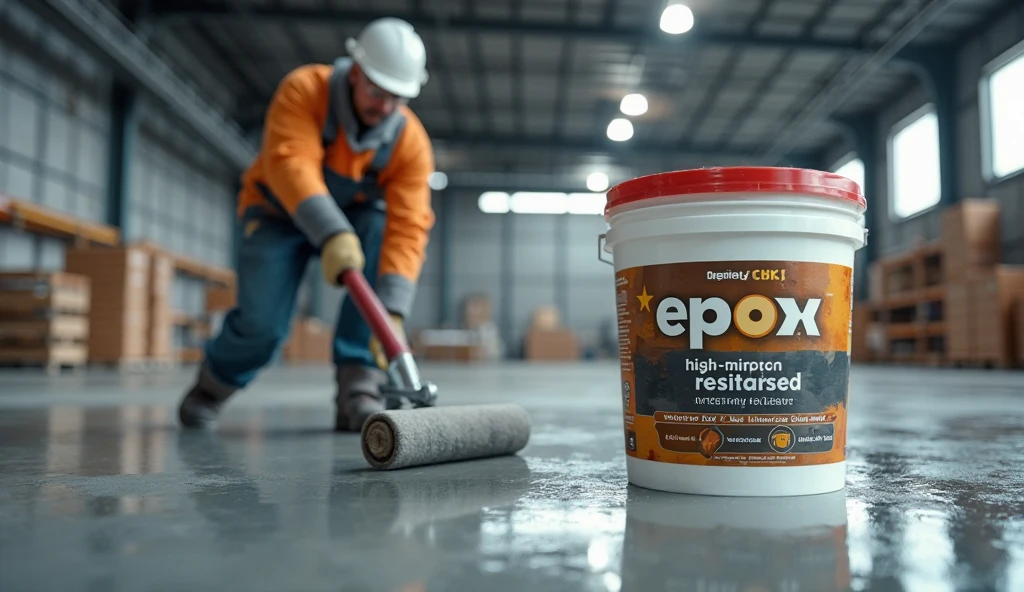Surface preparation is crucial for the effective adhesion of coatings, as it ensures surfaces are free from contaminants. Specialists meticulously assess substrates for impurities like dust, rust, and oils. Material evaluation involves a comprehensive understanding of the properties of polymers and metal coatings to ensure durability and functionality. Common techniques for surface preparation include blasting, grinding, and chemical cleaning, each methodical in its approach to deliver optimal results. Adhering to established standards like those from the Society for Protective Coatings (SSPC) is vital for maintaining best practices in preparation. Such standards provide a benchmark that aids in achieving consistency and reliability in application, thus supporting the longevity of protective coatings.

Professionals utilize diverse application methods such as spraying, rolling, brushing, and dipping, each designed for specific scenarios with distinct advantages. A coating specialist must understand critical factors like viscosity, temperature, and equipment settings to ensure the best possible application outcome. Familiarity with various coating types, including epoxy, polyurethane, and quick-drying paints, is imperative to match the coating with its intended function. Evidence indicates that improper adherence to these techniques can cause application failures; therefore, following manufacturer guidelines is critical. Such adherence ensures coatings perform their protective functions effectively, thus preserving the longevity of the substrate.
Quality control is a cornerstone in verifying that coatings meet specified standards for performance and appearance, thus avoiding the costly implications of rework. Inspection techniques such as adhesion testing and thickness measurement are essential in assessing the overall integrity of the coating. Regular audits and inspections can identify potential issues before they affect operational efficiency, ensuring uninterrupted operations. Adhering to industry standards, like those set by the National Association of Corrosion Engineers (NACE), supports robust quality assurance measures. Such standards help maintain high quality and reliability within the coating processes, ensuring that the protective features do not falter under operational stress.
In the oil and gas industry, coating specialists are essential for protecting drilling equipment against corrosion caused by harsh environments. The primary defense involves applying advanced anti-corrosive coatings and galvanization to ensure the durability and efficiency of drilling operations. These coatings not only act as a barrier against corrosive elements but also help in maintaining equipment integrity, which is crucial given the high investment in drilling tools. Regular maintenance and inspections of these coatings are vital, as they can significantly extend the lifespan of expensive drilling machinery. Studies further indicate that effective coatings can reduce the frequency of maintenance-related downtimes, thus optimizing operational efficiency.
The automotive sector is increasingly adopting PFAS-free coating solutions, driven by both regulatory demands and environmental concerns. Coating specialists in this field focus on creating sustainable coatings that do not compromise on performance for electric vehicles. These innovations in coatings assist in reducing vehicle weight and enhancing battery efficiency, essential factors in modern EV design. Adoption of these sustainable coatings is on the rise, reflected in projected market growth, as manufacturers aim to balance ecological responsibility with technological advancement.
In the construction industry, specialists employ advanced coatings to bolster the durability of structures, especially those exposed to harsh environmental conditions. Popular applications include fire retardant coatings, waterproofing agents, and UV-resistant materials, each contributing to the longevity and safety of constructions. Moreover, adherence to regulatory standards and building codes is critical, as they often dictate the suitable types of coatings for various projects. Research supports the notion that investing in quality coatings can result in reduced long-term maintenance costs and enhanced safety, underscoring the value of these preventive measures.

The NACE Coating Inspector Program (CIP) Levels 1-3 offers a comprehensive pathway for individuals aiming to excel in coating inspections. This certification is globally recognized, affirming a professional’s competence in conducting thorough and reliable coating inspections. The program not only emphasizes theoretical knowledge but also focuses on practical skills essential for various coating applications. Statistics indicate that professionals with NACE certification tend to secure higher positions and experience faster career growth compared to non-certified peers.
Specialized training programs for concrete coatings and linings are integral to enhancing professional aptitude in this niche field. These programs typically cover crucial topics such as surface preparation, product selection, and application techniques tailored for concrete surfaces. The hands-on approach adopted by these courses guarantees that participants can effectively implement learned skills in real-world scenarios. Industry studies have shown that individuals who undergo specialized training often achieve superior project outcomes and higher customer satisfaction levels.
Acquiring safety certifications is indispensable for coating specialists operating in hazardous environments, where potential risks are prevalent. Training programs that cover OSHA (Occupational Safety and Health Administration) regulations ensure that professionals adhere to compliance and maintain workplace safety standards. Certification in the proper use of personal protective equipment (PPE) substantially improves safety practices during coating applications. Data from safety organizations substantiate that proper safety training significantly decreases the occurrence of workplace accidents.
The coatings industry is actively shifting towards sustainable solutions, driven by the growing awareness of environmental impacts. Innovations in this field now include bio-based materials and non-toxic formulas that adhere to strict environmental regulations. Testing has demonstrated that these new sustainable coatings maintain performance standards equivalent to traditional products. As consumer demand for eco-friendly options increases, market reports suggest a rapid growth trajectory for sustainable solutions in the coming years.
Microencapsulated adhesives represent a significant advancement in targeted bonding solutions, making them ideal for precision applications across various industries. These adhesives are designed to release bonding agents upon activation, ensuring controlled application and improved efficiency. Research indicates that microencapsulation technology is gaining traction, particularly in the electronics and automotive sectors. Case studies have shown these adhesives reduce waste and enhance assembly processes, proving their effectiveness in practical applications.
The evolution of anti-corrosion systems addresses the increasing risks posed by extreme environmental conditions, especially in industrial settings. Modern systems feature hybrid formulations that combine multiple protective agents to deliver longer-lasting performance. Studies have demonstrated that implementing advanced anti-corrosion systems can significantly reduce maintenance costs over time. Industry insights highlight a growing demand for these systems, particularly in sectors like marine and oil & gas, underscoring their critical role in corrosion control.
Hands-on workshops are pivotal for providing practical training in coating inspection techniques. These workshops cover topics such as visual inspections, adhesion testing, and the use of specialized measurement equipment, ensuring that participants gain comprehensive skills vital for coat performance assessment. Research indicates that practical workshops significantly improve skill retention and applicability in real-world scenarios. Not only do these workshops foster a better understanding, but they also often lead to certifications, thereby enhancing the credibility and career prospects of professionals in the coating industry.
Industry-specific training programs are tailored to meet the unique requirements and standards of various sectors. For instance, the NAVSEA program is designed for the naval sector, focusing on the regulations and standards specific to marine coating applications. Participants in such programs gain in-depth knowledge of compliance and best practices crucial for these fields. Data shows that professionals with specialized expertise in industry-specific requirements, such as those from NAVSEA, command higher wages and more advanced job roles, reflecting the value of such specialized training and certification.
Continuing Education Units (CEUs) are essential for professionals seeking to maintain their certifications and stay abreast of the latest advancements in coating technologies. Engaging in ongoing education through CEUs ensures that specialists remain informed about emerging trends and best practices within the industry. Many professional organizations offer CEUs through various mediums such as seminars, online courses, and workshops, accommodating different learning preferences. Statistics reveal that professionals who commit to continuous education are more likely to experience career advancement, underscoring the importance of lifelong learning in this dynamic field.
A coating specialist is responsible for surface preparation, applying coatings using various techniques, and ensuring quality control through inspection and testing.
Coating specialists are employed in industries such as oil & gas, automotive, and construction, where protective and specialized coatings are crucial for equipment longevity and efficiency.
Important certifications for coating specialists include the NACE Coating Inspector Program and safety certifications for working in hazardous environments.
Emerging trends in coating technology include sustainable and PFAS-free coatings, microencapsulated adhesives, and advanced anti-corrosion systems designed for industrial use.
Continuing education benefits coating specialists by keeping them updated on the latest industry trends and practices, essential for career advancement and maintaining certifications.